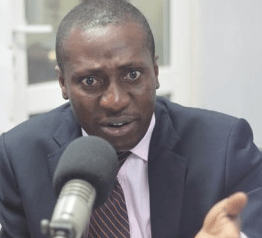First Deputy Speaker’s ruling: Majority refutes claims of illegality

Mr Alexander Afenyo-Markin, the Deputy Majority Leader, has refuted claims by the Minority that the decision by the First Deputy Speaker, Mr Joseph Osei-Owusu, rejecting a motion for a bi-partisan committee to probe the COVID-19 expenditure, was unconstitutional.
“It has come to our attention that the Minority side is creating the impression that the decision by the First Deputy Speaker was illegal and unconstitutional,” he said.
“We, therefore, say that if the Minority had paid attention to what we said they would have known all of us were on the same page, we were looking for a better approach in ensuring accountability and transparency in public expenditure.”
Mr Afenyo-Markin said this when he addressed a press conference in Parliament to refute claims ascribed to the Minority that the ruling of Mr Osei-Owusu to a motion it tabled was illegal.
It would be recalled that the First Deputy Speaker threw out a private motion by the Minority for the House to constitute a bi-partisan committee to probe COVID-19 expenditures since the outbreak of the disease in 2020.
He said everything relating to the motion fell under the Public Accounts Committee (PAC), which was provided for under the 1992 Constitution.
Mr Afenyo-Markin also argued that the matter of investigating irregularities in public expenditure squarely fell under the Auditor General, with a clear indication under Order 187, saying; “That is the way to go”.
He said the basis for the Majority’s objection to the private member’s motion was constitutional because it was only the Auditor General who was mandated to determine irregularities in public expenditure.
“Therefore, the basis of our objection is constitutional because you cannot attempt to investigate irregularities in public expenditure by setting up a bi-partisan committee,” he noted.
“It is only the Auditor General who is constitutionally mandated to determine irregularities in public expenditure.”
Order 191 of the Rules of Parliament, was also clear that when a particular matter could not find space under the jurisdiction of any Committee of Parliament then it can set up a Special or Adhoc Committee to deal with that issue, Mr Afenyo-Markin said.
Source: GNA
